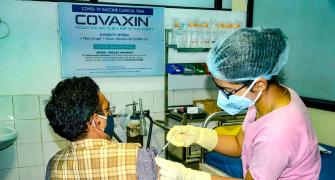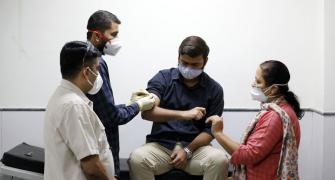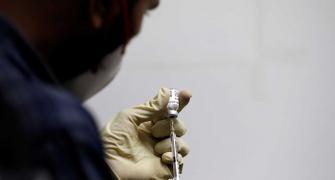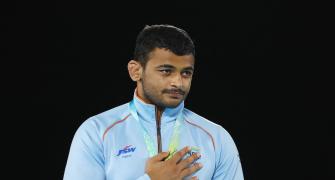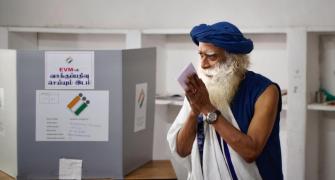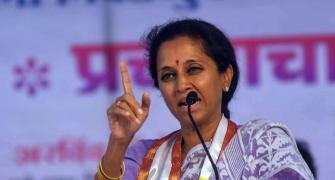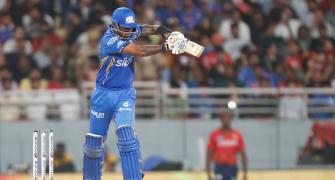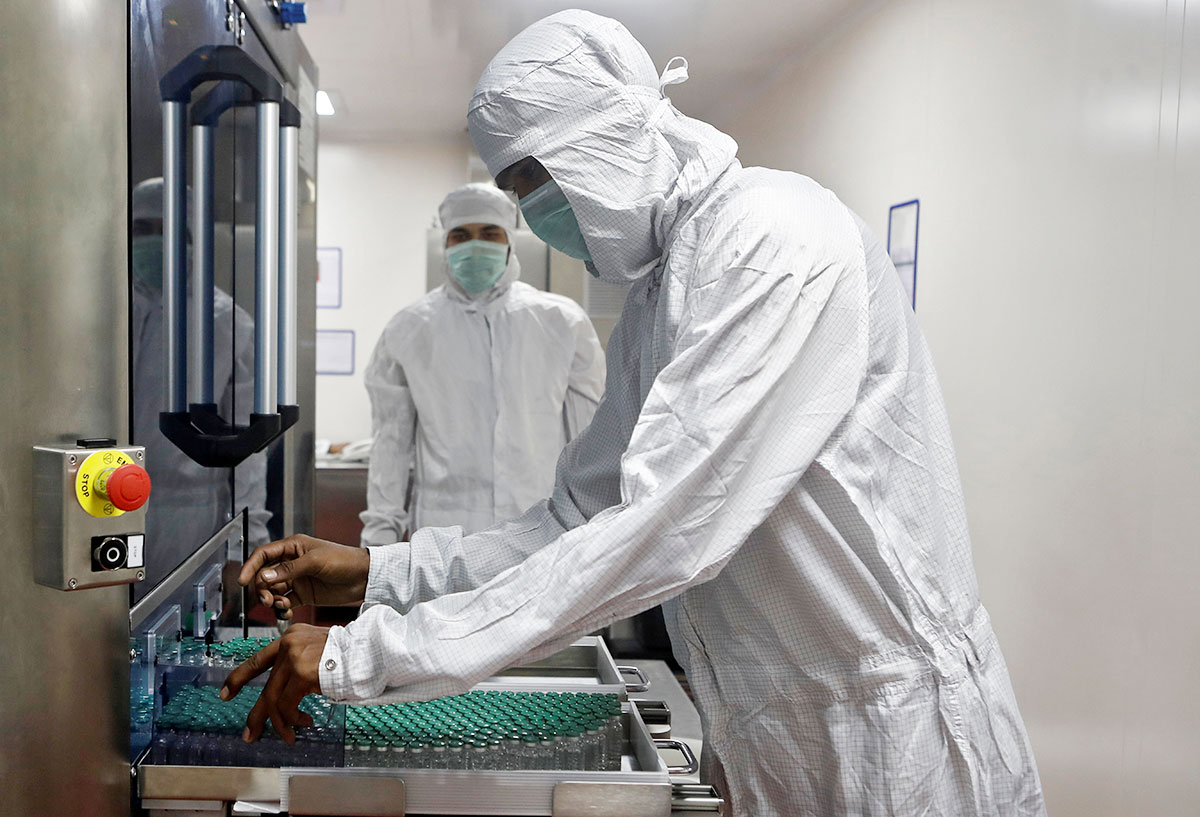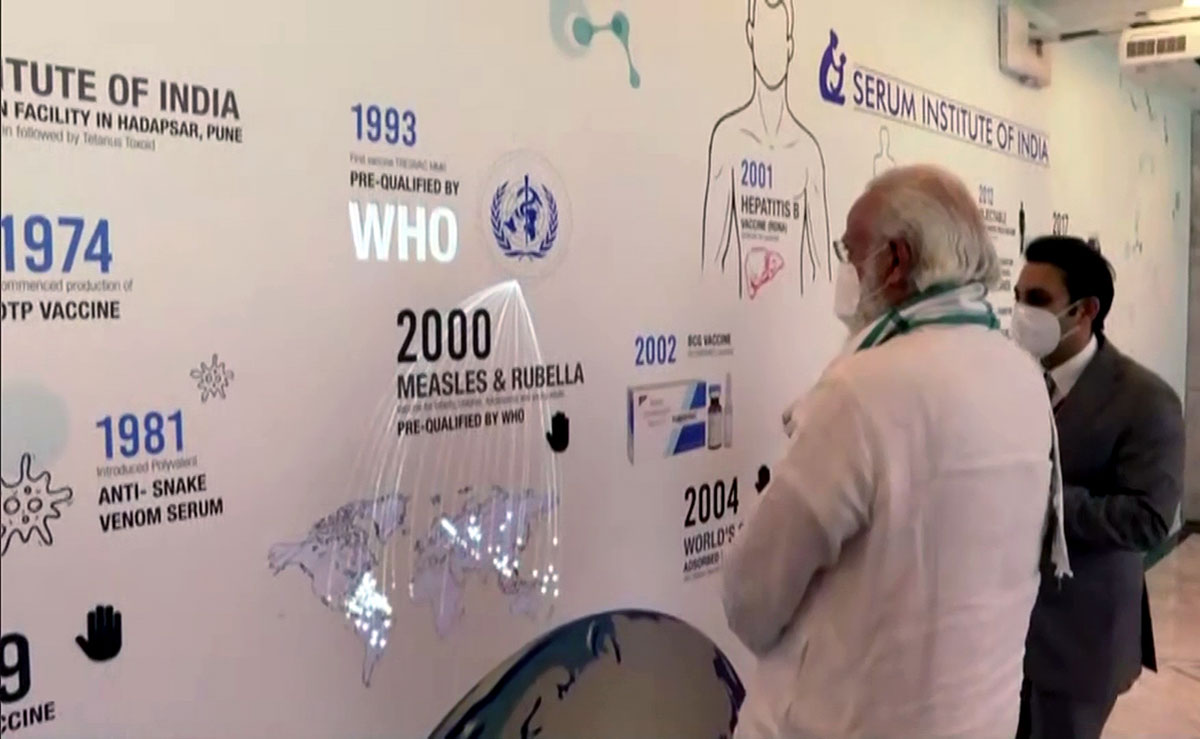'Rolling out the vaccine is not a major challenge in India.'
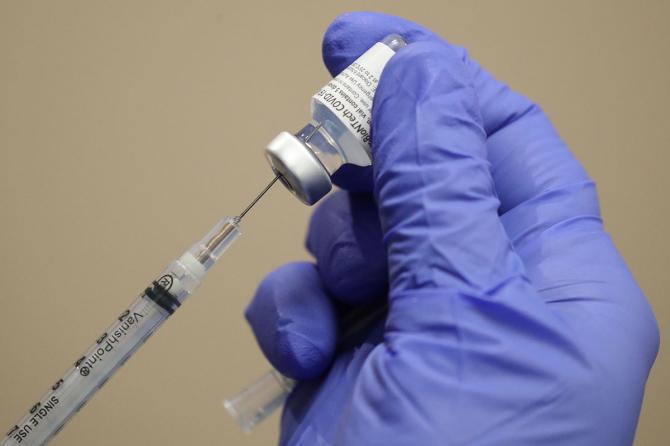
Once India has the right vaccine against COVID-19 in its hands, distributing it and administering it will be a piece of cake, it would seem.
And then India can start to slowly heal.
After ten long, brutal months of bombardment and assault by the COVID-19 virus.
That's an immensely heartening piece of news after a year of gloom.
Dr Giridhar Babu, who spent six years in the field working on coordinating measle vaccine programmes, in the early 2000s, for the Karnataka government and for WHO, in an interview to Vaihayasi Pande Daniel/ Rediff.com, assures us that India is quite up to speed in mounting a mass vaccination programme for COVID-19 swiftly and efficiently.
But the Pfizer COVID-19 vaccine, priced apparently at $20, which is starting its longwinded and historic round of the neediest populations in the United Kingdom and the US, may not be the vaccine that will reach our shores.
Or the perfect vaccine for India.
Dr Giridhar explains how these decisions are made by the government and what a vaccination campaign takes.
A physician and public health expert, Dr Giridhar is a professor and head lifecourse epidemiology at the Public Health Foundation of India, Bengaluru.
He qualified at the All India Institute of Medical Sciences, New Delhi, and trained in epidemiology at UCLA, California and has extensive experience in handling various viral and communicable diseases, through his clinical and research work.

A month ago, it seemed like that when vaccination against COVID-19 started globally, it would happen in India at the same time.
But now vaccination has begun with the Pfizer vaccine in America and the UK, and it's not happening in India.
Why isn't India looking at importing the Pfizer ones?
Or are we committed to the Astra Zeneca- Serum Institute and Bharat Biotech vaccines?
India took the route of developing indigenous vaccines.
At the same time, India also has all its options open, if other vaccines become available, which are feasible to implement in India.
But for the vaccine to be deployed in India, its deployment has to work with our cold chain system.
If that's feasible, then I am sure India will consider it.
So, what has happened now is that for Astra Zeneca and Bharat Biotech, the results are not completely available.
They can't go ahead with the vaccine for which they do not have the right evidence.
They are waiting for the results.
At the same time, India's population -- in terms of the number of high-risk people -- to cover all of them, you would require more than one vaccine.
One vaccine will not be sufficient.
So, I think the government will then have to prepare a plan in terms of which is available first and which can be rolled out.
Because yesterday (December 15) even Sputnik (who is manufacturing the Russian Sputnik V vaccine against COVID-19) has announced 91 per cent efficacy.
And Pfizer has said they are ready to talk to India.
I think it will be a combination of a few vaccines and what is the affordability, how feasible it is to use in India, and then the government should make a decision in terms of all the varieties.
They also have a committee on procurement of all these vaccines and its rolling out.

Were they sort of taken by surprise when the Pfizer vaccine came out first?
So they hadn't really set up talks with Pfizer, as such, before that?
It is not like that.
What happens is, you cannot really predict which trial will be completed when.
The Indian government has prepared plans for any vaccine, not necessarily Company A versus Company B.
But for the Pfizer vaccine you require -70 C cooling.
From the beginning, the discussion is around that.
If you get a vaccine for which you require -70 C cooling, do you really want to use it in the field or not?
In India, in the rural areas you cannot have -70 C cooling for a vaccine.
Even in urban areas you cannot have -70 C, unless you create the infrastructure structure for it.
I think there is a Pune-based firm which is coming up with managing this -70 C situation in a different way.
Also, in the US they have come up with their own ways of managing, using dry ice and all that.
So, technology is something where innovations are possible.
Having -70 C in a small cold box - how can you do it using dry ice and all that?
That is the innovation required now.
I'm sure if the decision is to take the Pfizer vaccine then the government will create these kinds of solutions.
This is entirely the problem: The moment you decide on a vaccine then the entire logistics for that vaccine will have to be mounted up.
We are ready for any vaccine, which is between -2 to -8 C.
Because the cold chain in India for vaccines is strong.
Cold boxes are there.
Deep freezes are there.
Even till -20 C they can manage at even the district level.
Even in rural areas.
The moment it is -70 C, then you will have to augment this capacity.
Now is it definitely important to go for the -70 C vaccine?
Is it the only way?
Can we wait for a month and have other vaccines?
For all that we don't know the answers yet.
The government will then have to take a call, in terms of how they will roll it out.
It is difficult, but I'm sure it's not an impossible thing to look at.

The government seems to be invested or backing the Serum Institute vaccine one.
And Bharat Biotech.
It would seem that the Serum Institute vaccine will not need to be stored at temperatures as cold as -70 C?
Both -- even the Bharat Biotech -- doesn't require -70 C.
Astra Zeneca requires between -2 and -8 C.
And even for the mRNA vaccines*, they have a system of managing it, in terms of certified cold chain boxes.
The government will take into account all these aspects and then probably take a decision.
I was sort puzzled when I looked at the recent headlines about the Pfizer vaccine roll out.
Russia was supposed to have come out with a vaccine first.
But it has gone down in the records that the 90-year old woman in Britain received the first COVID-19 vaccine.
Does that mean that the Russian vaccine seems to have fallen a little bit short in its efficacy?
It's not exactly whether it is relatively more efficacious or not.
The question is, in terms of who goes with the complete data first.
If you see the FDA (US Food and Drug Administration) filing of Pfizer it is far more detailed.
Also, they came with a publication in the New England Journal of Medicine, which is peer reviewed and has high credibility.
Then you need to give complete details to the FDA.
FDA then takes a decision in terms of the overall benefits (reliability).
That kind of documentation, if the Russian vaccine had made to FDA, I don't think FDA would have rejected, if there is a merit in accepting it.
So, the question is whether the data was available at that point in time.
Yesterday (December 15), they (Sputnik) have given a press release, but at the time when Pfizer went to the FDA, did the Russian vaccine manufacturers have that kind of data?
That's the real question.
Apart from the difficulties in having a -70 C cold chain that you mentioned, how is India faring in terms of its preparation for getting a vaccine?
In what areas is the preparation good and in what areas does the preparation need improvement?
How does the picture look?
In terms of implementing the vaccination program in India, I don't think there are any challenges.
In the sense that we have vaccinators spread out across the country.
We have somebody called the junior health assistant, who is employed by the government -- one person for every 5,000 people.
They are also called ANM (Auxiliary Nursing Midwife).
There is already that kind of work force.
They're already involved in doing vaccinations.
These are frontline health workers, who have been delivering intra-muscular injection, subcutaneous injections, for the vaccine programme of India, which is called as the Universal Immunisation Programme (in place since 1985).
They're trained in that and they are doing this, as part of their work, day in and day out.
They only require additional redirection, in terms of what is the new technology (for a COVID-19 vaccine) and how they need to maintain it and this kind of training has to be given to them.
The real challenge is in the urban areas -- not in the rural areas -- where we do not have this kind of workforce.
Then we'll have to involve people from the other sectors, like nursing colleges, medical colleges and all that.
For any immunisation programme in India, urban areas are the challenge.
But we have a strong private sector in the urban areas.
It will not be a very difficult challenge.
Just a matter of how well they are coordinating with the private sector.

Does that mean these preparations are in place even for urban areas?
Have they started this sort of dialogue with the private sector?
Yes, yes, yes.
Not just urban and rural.
The government of India came out with guidelines almost two months ago on how to start preparing for vaccination.
And almost a month ago, state-level committees/state task forces for the vaccine roll out were formed.
District task forces has been formed.
Now they've been thinking even in terms of being at the block level.
Now state control rooms for COVID-19 have been converted into vaccination control rooms.
For urban areas, there are special task forces being made.
Several activities have already started, as we speak.
And all these things are happening, even when a vaccine is not available.
In a sense, the moment the vaccine is there, everybody is ready to roll out immediately.
You just mentioned about the difficulties of doing vaccination in an urban area.
But apart from that, in your point of view, what do you see as a greatest difficulty when it comes to vaccinating India?
Rolling out the vaccine is not a major challenge in India.
What we need is a safe and effective vaccine, which is affordable and which is feasible to move in the (interiors) which, as I said, can handle vaccines that need cooling of -2 to -8 C.
If you have that, globally India is recognised for its immunisation program - for example polio eradication, measles elimination activity.
We have a very robust system and I have worked in that programme for six years.
I know how robust its design is and the kind of infrastructure that is there.
It is almost become mechanical, for most health workers to implement an immunisation program.
And with a reorientation they can do it for a COVID-19 vaccine too - it's just like the vehicle needs some gasoline to run.
That's all.
Now the vaccine is what is needed.
Otherwise the engine is ready and the vehicle is standing by.
*According to CDC US: 'mRNA vaccines are a new type of vaccine to protect against infectious diseases.
To trigger an immune response, many vaccines put a weakened or inactivated germ into our bodies.
Not mRNA vaccines.
Instead, they teach our cells how to make a protein--or even just a piece of a protein--that triggers an immune response inside our bodies.
That immune response, which produces antibodies, is what protects us from getting infected if the real virus enters our bodies'.
Feature Presentation: Ashish Narsale/Rediff.com


